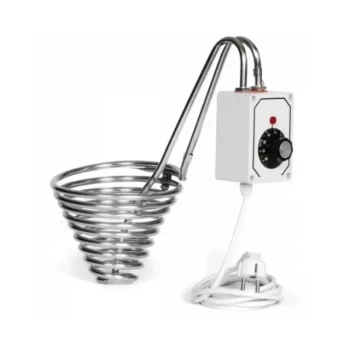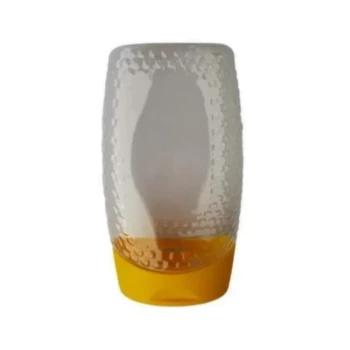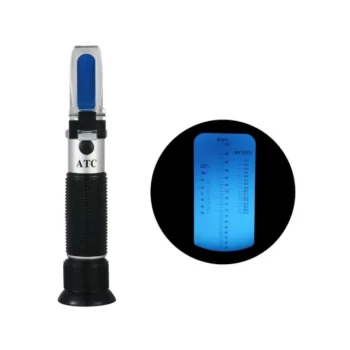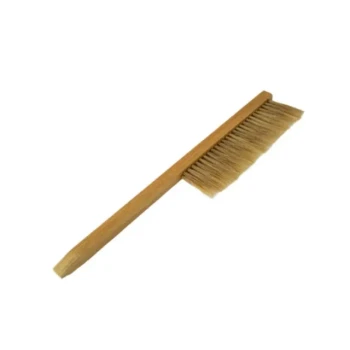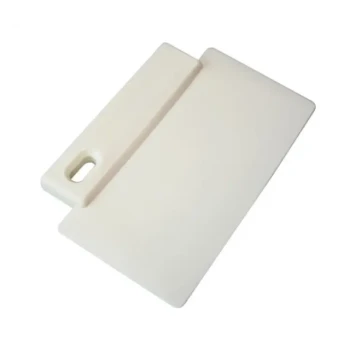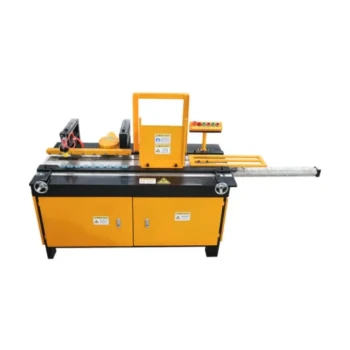The best micron filter for your honey depends entirely on your end goal. For most beekeepers preparing honey for general sale, a 200-micron filter is the established standard. This size is fine enough to remove unwanted debris like wax particles and bee parts but coarse enough to allow beneficial pollen grains to pass through. For creating an exceptionally clear product for competitions, a much finer 75-micron filter is the preferred choice.
The choice of a honey filter is a direct trade-off between achieving visual clarity and preserving the natural pollen content. A lower micron number produces clearer honey but removes more pollen and significantly slows down the filtering process.
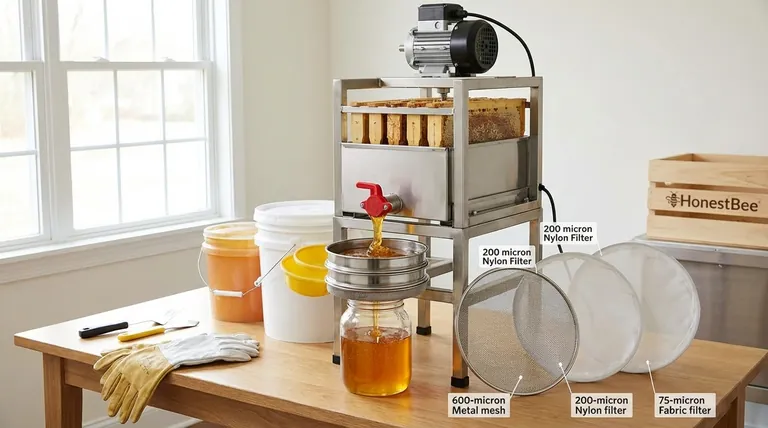
Understanding Micron Ratings for Honey
To select the right tool, you must first understand the principle behind it. The micron rating is the key to controlling the final character of your product.
What "Micron" Means
A micron is a unit of measure equal to one-millionth of a meter. When applied to a filter, it describes the size of the holes in the mesh.
A lower micron number indicates smaller holes, resulting in a finer filtration that stops smaller particles. A higher micron number means larger holes and a coarser filtration.
The Goal of Filtering
The primary purpose of filtering is to remove visible impurities left over from the extraction process. These include bits of beeswax, propolis, wood splinters from the hive, and occasionally bee parts.
Filtering creates the clean, appealing product that most consumers expect. However, aggressive filtering can also remove desirable elements, most notably pollen.
Matching the Filter to Your Purpose
There is no single "best" filter, only the best filter for a specific application. Your choice should align directly with the type of honey you aim to produce.
For General Sales & "Raw" Honey: The 200-Micron Standard
For honey intended for farmers' markets or general retail, a 200-micron filter is the ideal workhorse.
It effectively removes all noticeable debris, yielding a product that is clean and commercially attractive. Crucially, it is large enough to allow the vast majority of healthful pollen grains to remain in the honey, which is a key selling point for many customers.
For Crystal-Clear Show Honey: The 75-Micron Polish
When preparing honey for a competition or "show bench," appearance is paramount. Judges value crystal clarity and brilliance above all else.
A 75-micron filter is used to achieve this. It removes much finer suspended particles, including some of the larger pollen grains, which results in a stunning, jewel-like clarity. This is considered a finishing or polishing step for a small, high-value batch.
For Initial Straining: The 400-600 Micron First Pass
For beekeepers processing larger volumes, a multi-stage filtering system is far more efficient. The first step should be a coarse straining process.
Using a 400 or 600-micron strainer first will catch all the large debris. This prevents your finer, primary filter from clogging quickly, saving you significant time and effort.
Understanding the Trade-offs
Choosing a filter is an exercise in balancing competing priorities. Understanding these compromises is the mark of an experienced honey processor.
Clarity vs. Pollen Retention
This is the central conflict in honey filtering. While a 75-micron filter produces beautiful, clear honey, it does so by removing more of the naturally occurring pollen.
Many consumers who seek out local or "raw" honey do so specifically for the perceived health benefits of this pollen. Over-filtering can inadvertently remove a key feature your target audience values.
Processing Speed and Clogging
The finer the mesh, the slower the honey will flow through it. A 75-micron filter will clog much faster than a 200-micron filter, requiring frequent scraping and cleaning.
This effect is magnified by cool temperatures, which increase honey's viscosity. Gently warming your honey (to no more than 95°F or 35°C) can dramatically speed up filtering, regardless of the micron size you use.
Making the Right Choice for Your Goal
Base your decision on the specific outcome you need to achieve.
- If your primary focus is producing "raw" or artisanal honey for sale: A 200-micron filter is your best choice, balancing clarity with the retention of valuable pollen.
- If your primary focus is winning a honey competition: Use a 75-micron filter as a final step to achieve the exceptional clarity judges look for.
- If your primary focus is efficiency with large batches: Use a multi-stage system, starting with a 400-600 micron strainer before moving to your 200-micron finishing filter.
Ultimately, selecting the right filter empowers you to control the final character of your honey, matching it perfectly to your intent.
Summary Table:
| Micron Rating | Best For | Key Benefit | Trade-off |
|---|---|---|---|
| 200 Micron | General Sales & Raw Honey | Removes debris while retaining beneficial pollen | Standard clarity, not competition-grade |
| 75 Micron | Show Honey & Competitions | Achieves crystal-clear, brilliant appearance | Removes more pollen, slower filtering |
| 400-600 Micron | Initial Straining (Large Batches) | Quickly removes large debris to prevent clogging | Requires a second, finer filter for finishing |
Ready to Perfect Your Honey Filtration Process?
As HONESTBEE, we specialize in supplying high-quality beekeeping supplies and equipment to commercial apiaries and beekeeping equipment distributors. Our range of honey filters is designed for efficiency and superior results, whether you're producing for the retail market or the show bench.
Let us help you choose the right equipment to match your production goals. Contact our expert team today to discuss your wholesale needs and elevate your honey processing.
Visual Guide
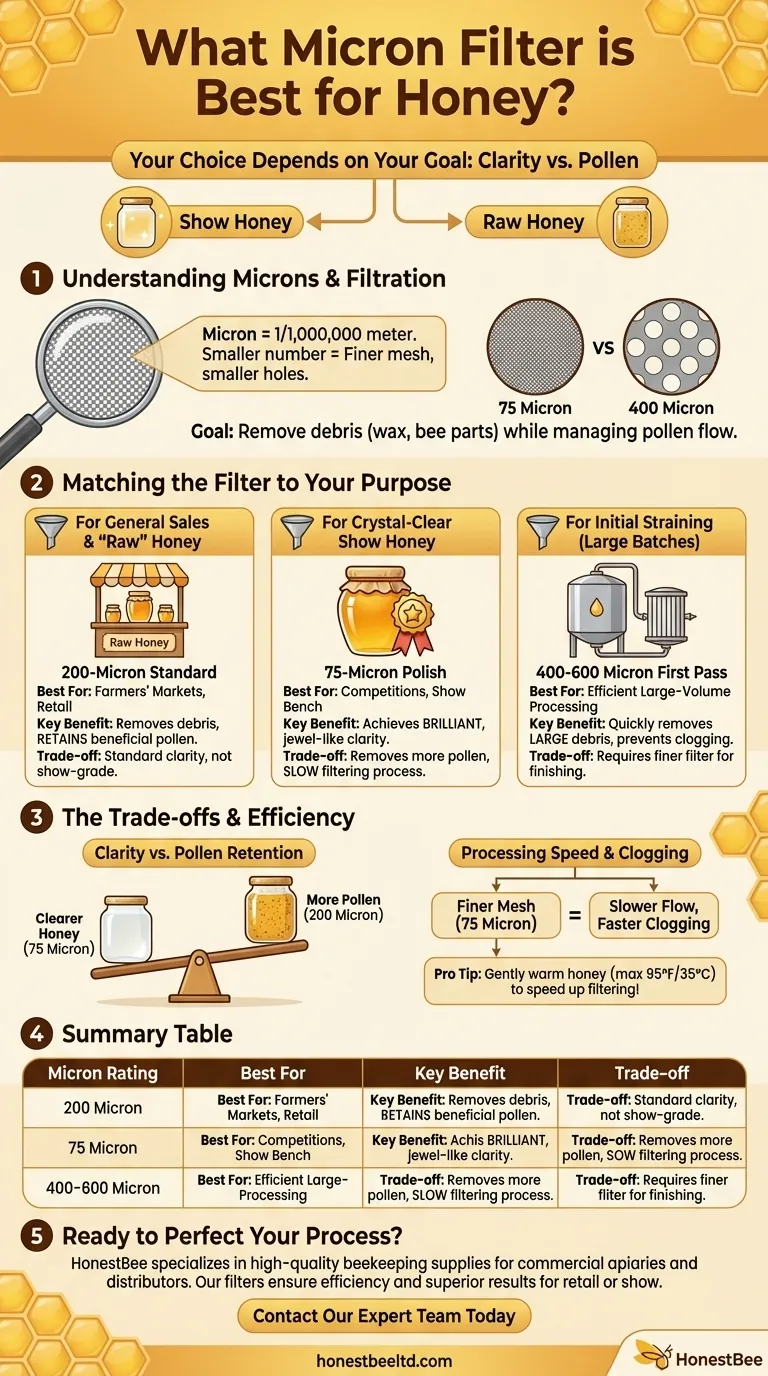
Related Products
- 10L Stainless Steel Electric Honey Press Machine
- HONESTBEE 72 Frame Industrial Electric Honey Extractor for Beekeeping
- 0.5T Capacity Honey Dehumidifier Dryer with Vacuum Heating and Thickening Filtering Machine
- Plastic Hand Crank 2 Frame Honey Extractor Low Price
- Honey Concentrating Vacuum Heating Thickening Machine Dehumidifier for Honey
People Also Ask
- What are the key features of a honey press? Maximize Yield with Durable, Efficient Extraction
- What are the key features of the stainless steel honey press? Maximize Yield & Guarantee Purity
- How does pressed honey compare to extracted or crush-and-strain? Unlock the Full Flavor of the Hive
- What are the unique characteristics of honey presses? Maximize Honey Yield for Small-Scale Beekeeping
- What are the benefits of the screw design in a stainless steel honey pump? Preserve Honey Quality and Integrity







